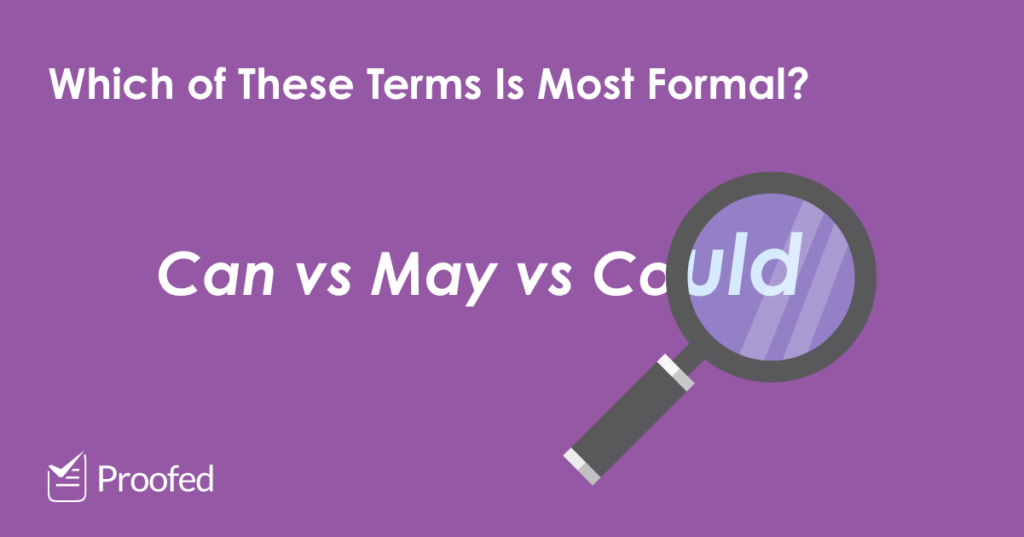The terms “can,” “may,” and “could” are often used interchangeably. But is this correct? Well, the difference between these words is often a matter of formality, but it depends on how you use them. Read on to find out why English has so many terms for expressing possibility and making requests!
Expressing Possibilities
“Can,” “may,” and “could” are all modal verbs used to express the possibility of something. To suggest a strong possibility, for instance, we use “can”:
Vitamin C can boost your immune system.
Using “can” in this way suggests not just a possibility, but a likelihood. However, if we were less certain, we would use “may” or “could” instead:
Vitamin C may boost your immune system.
Vitamin C could boost your immune system.
The difference between these terms lies in how strong a claim we want to make. We can also make a stronger claim by using the verb “will” or not using a modal verb at all. For example:
Vitamin C will boost your immune system.
Vitamin C boosts your immune system.
Both of these last sentences suggest that vitamin C is certain to improve your immune system, not that it is simply likely or possible that it will do so.
Find this useful?
Subscribe to our newsletter and get writing tips from our editors straight to your inbox.
Making Requests and Granting Permission
The other situation in which “can,” “may,” and “could” can all be used is to make a request. In this case, the only difference is between how formal they are. For example, we could use these terms as follows:
May I have a lemon? = Very formal
Could I have a lemon? = Less formal
Can I have a lemon? = Informal
All these sentences are ways of asking for a lemon, but the first is politer and more formal than the others. In everyday language where formality isn’t an issue, “can” is the most common of these terms. But you may want to use “may” if you’re making a very formal request.
If we are granting permission for something, meanwhile, we can use either “can” or “may.” As with making a request, “may” is much more formal than “can” in this context, but they essentially mean the same.
Summary: Can, May or Could?
Whether these terms are interchangeable depends on how you use them:
- Discussing a Possibility: “Can” suggests a strong possibility or a general truth. “May” and “could” suggest we are less certain about something.
- Asking for Permission: You can use all three words to ask for permission. To be formal, though, you should use “may” instead of “could” or “can.”
And if you need any more help ensuring you use the right words in the right places, try our proofreading service for free today!
